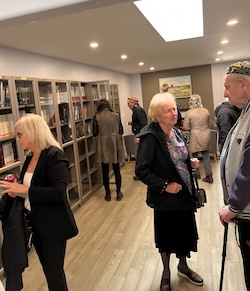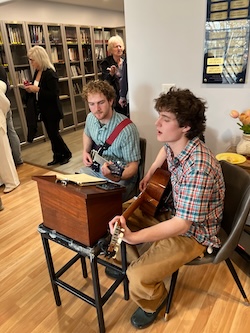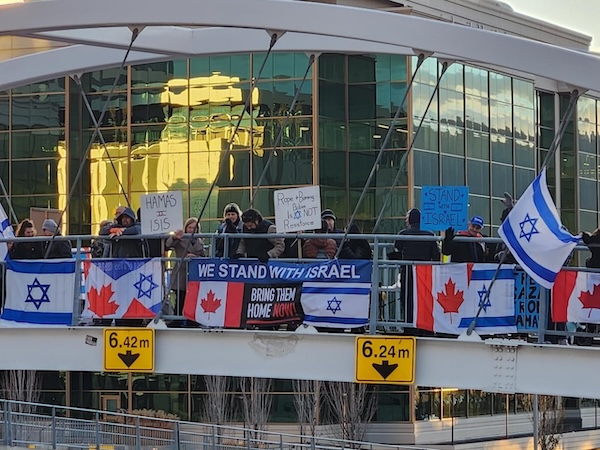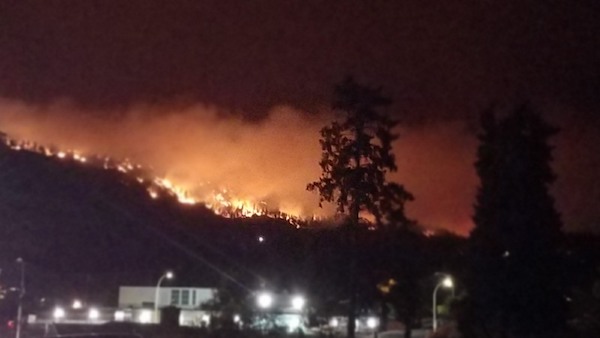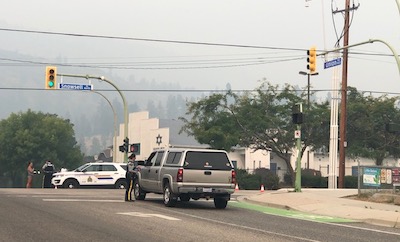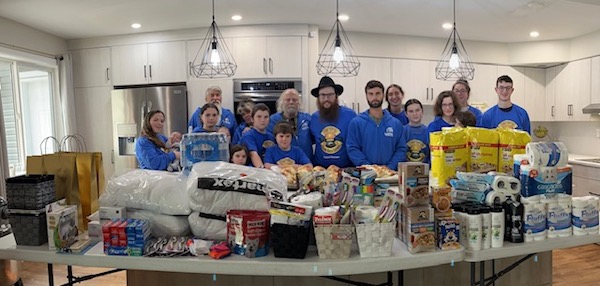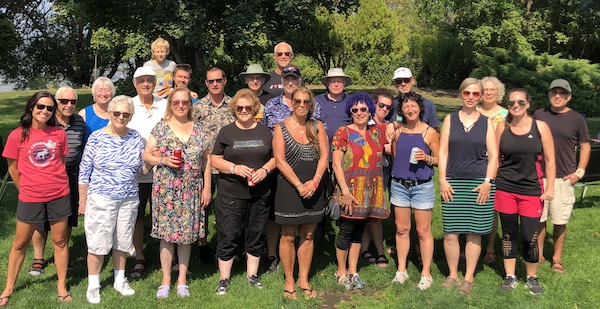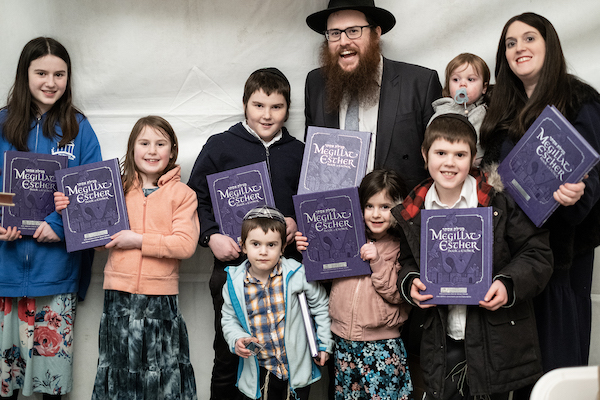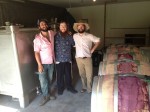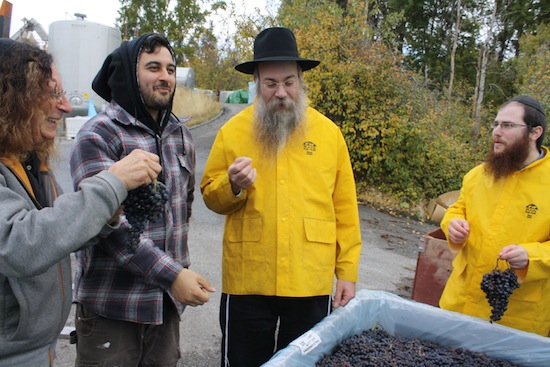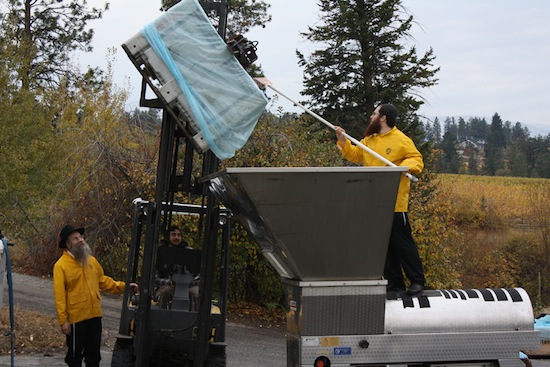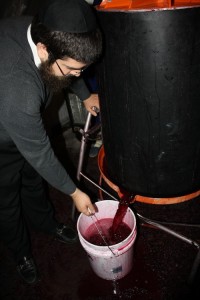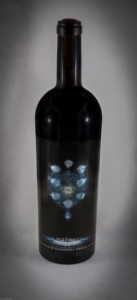Artist Mari Sue Baga listens as Rabbi Shmuly Hecht talks about a painting of the Lubavitcher Rebbe that she made in his honour. (photo from Okanagan Chabad House)
On March 9, the Chabad Living Library officially opened its doors to the public. The afternoon event was attended by members of the Okanagan Valley community and beyond, celebrating the launch of this new addition to the cultural and educational landscape of the region.
One of the highlights of the event was the unveiling of an original artwork by local Jewish artist Mari Sue Baga. The painting, entitled “Living Legacy,” depicts the Torah as a living, breathing guide, illustrating the timeless wisdom that inspires and shapes Jewish education throughout one’s life.


Baga spoke about her work and shared her inspiration behind the piece. She also surprised Rabbi Shmuly Hecht with a painting of the Lubavitcher Rebbe (Menachem Mendel Schneerson) that she had made in his honour. She presented it to Hecht, thanking him for his service to the community.
Hecht is the rabbi and emissary of Chabad to the Okanagan Valley. He spoke to the crowd about the significance of the library and its mission. He described a library as an inexhaustible source of wisdom, emphasizing that Jewish sacred literature, passed down by the sages, offers endless lessons to illuminate life’s path. He also explained that the Chabad philosophy – blending intellectual growth with emotional harmony – is embodied in the new library’s offerings.
“The essential thing is the deed,” Hecht concluded, encapsulating the library’s focus on both knowledge and action.
“In a small Jewish community, you’ve got to be creative, and keep finding new ways and avenues to engage and inspire,” he said. “The library was a perfect idea and just what the community needed. Our vision for the future is to make the library go mobile, and offer its services to communities all throughout the several-hundred-kilometre radius of space that we service, so we can include more Jewish people in the impact.”
The launch featured a variety of activities for all ages, including crafting sessions for the children. Guests were treated to sushi prepared by Jewish sushi chef David Dodgson & Co. Live music from Isaac Bloom and fellow University of British Columbia Okanagan students set a lively tone, enhancing the celebratory spirit.
A unique feature of the library is its double play kitchen – one for meat and one for dairy – designed to teach children about kosher kitchen practices in an interactive way. The library also features approximately 100 children’s books that instil Jewish ethics and morals, relevant to families of all backgrounds and affiliations.
For adults, the library’s collection of more than 1,000 books offers a treasure trove that spans a wide range of subjects, everything from Jewish heritage to practical life lessons aimed at helping individuals grow and thrive.
Guests were invited to explore the library’s exclusive collection of books that can’t be found anywhere else in the Okanagan Valley. The library is also fully automated, with all the books input online. Members get a card with a QR code and the system reminds the member in two weeks to return the book. Everyone who became members of the library during the launch event (or signed up online prior to it) were gifted a special item, made possible by local Jewish photographers Andrew and Arlene Simpson.
In a game of Jewish Jeopardy, participants competed in teams for a chance to win a Star of David necklace. However, because of the team format, organizers decided to hold a raffle for all those present instead, and the winner of the necklace was Ezra Cipes.
The new library houses a 150-year-old yarmulka donated by Jerry Cohen, housed in a glass frame. Cohen, 91, was present for the dedication.
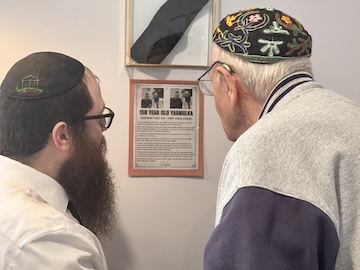
The event was possible thanks to the generosity of many individuals and families whose contributions helped bring the library to life.
The library’s offerings are not only about the books – it’s about creating a space where the community can learn, grow and connect. One of the visions is for community members to come by on Friday and pick up challah, wine and other Shabbat items, along with some books to make Shabbat more meaningful and more enjoyable. There’s also a little Judaica gift shop shelf.
Hecht concluded the launch event by reminding the community of the wisdom shared by Jewish sages: “Don’t say, when I have time, I will study – perhaps you will never discover that you actually have time.” He encouraged all to seize the opportunity to enrich their minds and souls through the library’s collection.
The Chabad Living Library is a project of the Okanagan Chabad House. It is open Fridays and Sundays, 11 a.m. -1 p.m.; and Tuesdays, 5-6:30 p.m.
Those interested in becoming a member or learning more about upcoming events and programs, contact Okanagan Chabad House at 250-575-5384 or office@jewishokanagan.com.
– Courtesy Okanagan Chabad House


